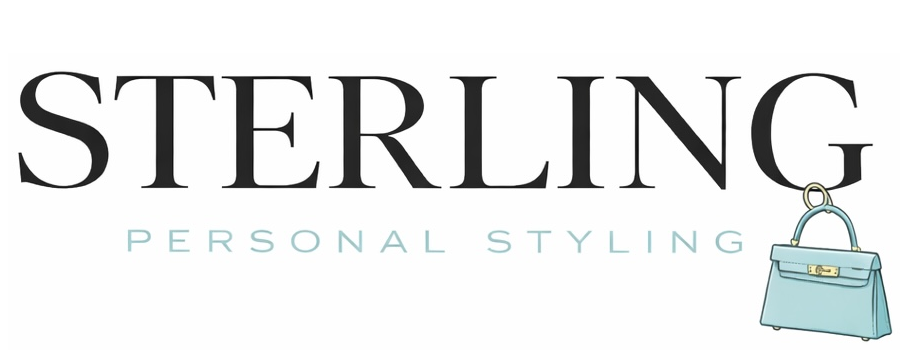Understanding Deflection and Its Impact on Behavior, Relationships, and Mental Health
Deflection is a term often used in conversations about psychology, relationships, and personal behavior. But what is defective behavior, and why does deflection play such a significant role in our interactions with others? This blog dives into the psychological and behavioral aspects of deflection, addressing common questions like, is deflection a form of gaslighting or is deflecting a traumatic response? By the time you’re done reading, you’ll have a much clearer understanding of what it means to deflect, which personality types are prone to it, and how it affects mental health and relationships.
- What Is Defective Behavior?
- What Personality Type Deflects?
- Is Deflection a Form of Gaslighting?
- Is Deflecting a Traumatic Response?
- Is Deflection a Narcissistic Trait?
- What Kind of Person Thrives on Conflict?
- Is Deflecting a Form of Manipulation?
- Is Displacement in Mental Health Related to Deflection?
- Why Does My Husband Always Deflect?
- Final Thoughts on Deflection
- Exploring Deflective Personality Examples and Their Impact on Relationships
What Is Defective Behavior?
Defective behavior refers to actions or responses that deviate from healthy, adaptive, or constructive norms. It often interferes with personal relationships, mental health, or both. Deflection is one example of defective behavior. It involves redirecting focus away from oneself, often to avoid accountability, confront discomfort, or manipulate a conversation.
For example, if you’re addressing an issue with a friend and they change the subject or blame you instead, that could be deflection. The key takeaway here is that while defective behavior like deflection might serve as a coping mechanism, it can also signal deeper psychological or emotional challenges.
What Personality Type Deflects?
Certain personality types are more likely to rely on deflection. But what personality type deflects most? Often, individuals with manipulative or defensive tendencies exhibit this behavior. For example, people with narcissistic traits frequently use deflection to maintain a sense of superiority or avoid admitting fault. Similarly, highly conflict-averse individuals may deflect rather than confront uncomfortable truths.
While not exclusive to any single type, deflection is often tied to underlying insecurities, fear of failure, or even learned behavior from past experiences. Recognizing this can help us approach conversations with more empathy while still setting boundaries.
Is Deflection a Form of Gaslighting?
One common question in understanding deflection is is deflection a form of gaslighting? The answer lies in the intent and outcome of the behavior. Gaslighting is a specific form of manipulation designed to make someone question their reality or sanity. Deflection, on the other hand, might not always have the malicious intent that gaslighting entails.
However, deflection can indeed overlap with gaslighting when used repeatedly to dismiss, confuse, or undermine the other person in a conversation. For instance, if your partner deflects criticism by accusing you of being “too sensitive” or “imagining things,” it can lead to feelings of self-doubt. This is where deflection crosses into the realm of emotional manipulation.
Is Deflecting a Traumatic Response?
Another key aspect of deflection is whether it stems from past experiences. So, is deflecting a traumatic response? The answer is yes—for some people. Deflection can be an unconscious coping mechanism developed after experiencing trauma.
For instance, someone who grew up in a critical or abusive household might deflect to shield themselves from emotional harm. They may have learned that admitting fault or engaging in difficult conversations led to punishment, so deflection became a survival strategy. While this might have been helpful in the past, it can create barriers to healthy relationships later in life.
Is Deflection a Narcissistic Trait?
When discussing deflection, a frequently asked question is is deflection a narcissistic trait? Narcissists often deflect to preserve their image and avoid accountability. This behavior allows them to shift blame onto others and maintain control in a relationship. For example, a narcissistic individual might respond to a valid critique by accusing someone else of being the real problem.
However, while narcissists commonly exhibit deflection, it’s important to remember that not everyone who uses this behavior is narcissistic. Deflection can also arise from fear, shame, or insecurity in individuals without narcissistic tendencies.
What Kind of Person Thrives on Conflict?
When exploring deflection, it’s interesting to ask what kind of person thrives on conflict? People who thrive on conflict often use deflection as a tool to escalate or control tense situations. This behavior is common among individuals with aggressive tendencies or competitive personalities who seek to “win” arguments at all costs.
Conflict-driven individuals may deliberately provoke others, then deflect responsibility for the resulting chaos. For example, they might argue over trivial matters and then accuse the other person of overreacting. Recognizing this tendency can help in managing interactions with such individuals.
Is Deflecting a Form of Manipulation?
Understanding whether is deflecting a form of manipulation requires examining the intent behind the behavior. Deliberately changing the subject or blaming others to gain an advantage or avoid consequences is manipulative, by definition. For instance, politicians often deflect questions during debates to avoid addressing uncomfortable topics or revealing weaknesses.
That said, not all deflection is manipulative. Sometimes, it’s a defense mechanism used unconsciously or instinctively. Recognizing the difference between innocent deflection and calculated manipulation is key to understanding a person’s intent.
Is Displacement in Mental Health Related to Deflection?
Deflection shares some similarities with displacement, a concept in mental health where individuals redirect emotions or impulses from one source to another. But is displacement in mental health a form of deflection? The two are distinct yet interconnected.
Displacement usually involves projecting anger or frustration onto a safer target, like yelling at a coworker after a disagreement with your spouse. Deflection, on the other hand, is more about avoiding self-reflection or accountability. Both behaviors point to an inability to address emotions or conflicts directly, highlighting the need for emotional awareness and mental health support.
Why Does My Husband Always Deflect?
If you’ve asked yourself, why does my husband always deflect? you’re not alone. Partners who frequently deflect might be grappling with their own insecurities, fear of conflict, or lack of communication skills. For example, if you bring up concerns about household responsibilities and your husband shifts focus by saying, “You never appreciate what I do,” this deflection might stem from feelings of inadequacy or defensiveness.
Addressing this behavior requires open communication and establishing boundaries. Additionally, exploring couples counseling or individual therapy can provide tools to break the cycle of deflection and build healthier interactions.
Final Thoughts on Deflection
Deflection is a fascinating yet complex behavior that intersects with manipulation, trauma, and mental health. From asking is deflection a form of gaslighting to understanding what personality type deflects, this blog has explored the many layers behind this behavior. Recognizing deflection in ourselves or others is a critical first step toward fostering healthier communication and relationships. While deflection can sometimes shield us from discomfort in the short term, addressing it openly leads to more meaningful and constructive interactions.

Exploring Deflective Personality Examples and Their Impact on Relationships
A deflective personality can make communication challenging, especially in relationships. This behavior shifts attention away from uncomfortable topics by redirecting focus elsewhere. Understanding deflective personality examples and how these tendencies show up in relationships is key to decoding the complexities of such interactions. Whether you’re dealing with a deflective partner, friend, or family member, recognizing the signs can pave the way for healthier dialogue and stronger connections.
What Is a Deflective Personality?
At its core, a deflective personality is characterized by behaviors aimed at avoiding accountability or difficult conversations. People with this tendency often redirect conversations to deflect blame, criticism, or uncomfortable feelings. Instead of addressing the issue at hand, they steer the discussion toward unrelated topics or make counter-accusations.
For instance, imagine a scenario where someone is confronted about being consistently late. A deflective response might sound like, “Well, you’re always criticizing me,” instead of taking ownership of their tardiness. This redirection puts the focus on someone else’s behavior, effectively avoiding the original issue.
Common Deflective Personality Examples
Deflective behavior manifests in many ways, and recognizing these patterns can help you understand when and why they occur. Here are some common examples:
- Blame Shifting
Instead of taking responsibility, a deflective person might say, “I wouldn’t have done that if you hadn’t pushed me,” effectively placing the onus on someone else. - Answering Questions with Questions
When asked about a mistake, a deflective individual might respond, “Why are you always trying to find fault in me?” instead of addressing the mistake outright. - Minimizing the Problem
They may downplay the seriousness of an issue with phrases like, “You’re overreacting,” or, “It’s not that big of a deal.” - Counter-Accusations
A classic deflective tactic is turning the tables, such as responding to criticism with, “Well, you’re not perfect either.” - Evading the Topic
Changing the subject entirely is another form of deflection. For example, a partner confronted about ignoring messages might suddenly bring up a different argument.
Deflective Personality in Relationships
Deflective behaviors can significantly impact relationships, creating barriers to open communication and trust. When one partner consistently deflects, it can leave the other feeling invalidated, unheard, and frustrated. Over time, this dynamic can erode emotional intimacy.
How Deflective Personalities Affect Communication
When someone with a deflective personality avoids direct dialogue, conflict resolution becomes nearly impossible. For example, in a disagreement about financial issues, a deflective partner might change the subject by pointing out flaws in their partner’s spending habits rather than addressing their own. This deflection creates a cycle where problems are ignored rather than resolved.
Emotional Disconnection in Partnerships
Deflective personalities can cause emotional strain in relationships. For instance, if a person repeatedly minimizes their partner’s concerns, the affected partner may feel undervalued or dismissed. Over time, this lack of validation can lead to resentment or emotional withdrawal.
Impact on Trust and Accountability
One of the most damaging effects of deflective behavior in relationships is the erosion of trust. If a partner consistently shirks accountability by deflecting, it becomes difficult for the other person to rely on or feel secure with them. Building trust requires honesty and a willingness to remain present in uncomfortable conversations.
Why Do People Use Deflection in Relationships?
Understanding why someone exhibits deflective behavior is a step toward establishing empathy and finding a way forward. Often, deflection stems from:
- Fear of Accountability
A person might fear being judged or criticized, leading them to deflect as a form of self-preservation. - Low Emotional Awareness
Some people may not be equipped to handle difficult feelings, so they avoid them entirely. - Trauma Response
For individuals with past trauma, deflective tendencies might act as a coping mechanism to avoid revisiting painful emotions. - Control and Manipulation
Deflection can also be a manipulative strategy, particularly in toxic relationships, as it shifts focus and puts the other person on the defensive.
Addressing Deflective Behaviors in Relationships
If you’re dealing with a deflective personality in a relationship, here are some strategies to improve communication:
- Set Clear Boundaries
Gently but firmly steer the conversation back to the original topic when deflection occurs. - Use “I” Statements
Frame your thoughts in a way that focuses on your feelings and needs, avoiding language that might feel accusatory. - Foster Emotional Safety
Encourage honest dialogue by creating a non-judgmental environment where vulnerability is welcomed. - Seek Professional Help
A therapist can provide tools and strategies to address deflective behaviors and improve relational dynamics.
Can Deflective Personalities Change?
While deflective behaviors can be deeply ingrained, change is possible with self-awareness and effort. Openness to personal growth and feedback can pave the way for improved communication and healthier relationships. People with deflective tendencies often need to develop emotional awareness and resilience to confront problems directly rather than avoiding them.
Final Thoughts
Deflective personality examples and deflective behaviors in relationships illustrate how challenging these patterns can be. Left unchecked, they can lead to misunderstandings, unresolved conflicts, and emotional strain. However, with patience, empathy, and proactive strategies, it’s possible to address and overcome these behaviors. Recognizing deflection for what it is can be the first step toward fostering stronger, more authentic connections.








